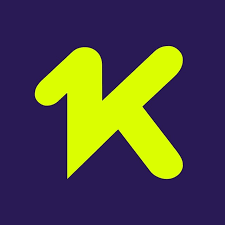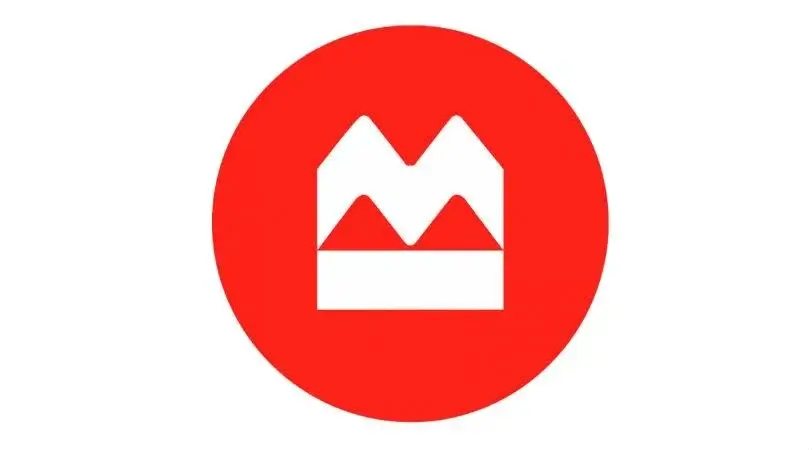Canadians who need to open a student bank account often turn to the major banks. While banks have student offers that are worth considering—we highlight two of the best in Canada below—a number of smaller, online-only financial institutions also cater to students’ banking needs. Here are our picks for the best student bank accounts and best student banking offers in the country.
Best student bank accounts in Canada
Gold: EQ Bank Personal Account
At a glance: The EQ Bank Personal Account is the best bank account for students in Canada. It combines high interest on balance with unlimited transactions and no monthly fees. It’s a strong choice for students wanting to maximize convenience, keep costs low and grow their balance. Considered a hybrid chequing/savings account, the Personal Account comes with a reloadable Mastercard you can use at any ATM in Canada and anywhere that accepts Mastercard—for free.
EQ Bank Personal Account
- Monthly fee: $0
- Transactions: Free, unlimited transactions
- Interest earned on balance: Up to 3.50%
- Welcome offer: None at this time
- 0.50% cash back on Canadian purchases
- 0.50% on international purchases
Pros
- High interest rate on balance: Set up recurring direct deposits of at least $2,000 per month and get 3.50% interest on money in your account.
- No ATM fees: Unlike accounts tied to a bank or network, the Personal Account eliminates all ATM fees. No matter which machine you use, EQ will reimburse the charges.
- Rewards: Use the reloadable Mastercard and earn 0.5% cash back on domestic and international purchases.
- No forex fees: Save on the standard 2.5% foreign transaction fee when using your bank card.
- Have multiple accounts: Open up to eight accounts, including joint accounts.
Cons
- Slow bank-to-bank transfers: It may take several business days to complete bank-to-bank transfers.
- No in-person branches: There are no physical locations for in-person service.
- Some banking features unavailable: A few standard features aren’t available, such as overdraft protection and the option to have paper statements.
Silver: Wealthsimple Cash
At a glance: Wealthsimple Cash is another great bank account for students, offering zero fees (including monthly fees, forex fees and overdraft penalties) and unlimited transactions. You also get one of the highest regular interest rates on your balance in Canada, so you can grow your balance. Plus, this hybrid chequing/savings account returns 1% back in cash, stock or crypto every time you spend with your Cash card.
Wealthsimple Cash
- Monthly fee: $0
- Transactions: Free, unlimited transactions
- Interest earned on balance: 1.75% to 2.75%
- Welcome offer: None at this time
- Earn 1% back in stock, crypto or cash
Pros
- High interest rate on balance: A minimum of 1.75% on all deposits in your account. Clients with $100,000 or more in assets with Wealthsimple and clients with $500,000 or more earn a respective 2.25% and 2.75% interest on their deposits, plus additional benefits.
- Additional interest: Earn 0.5% more interest (up to 2.75%) when you direct deposit more than $2,000 within a 30-day period.
- No forex fees: Save on the standard 2.5% foreign transaction fees on international purchases when using your Wealthsimple Cash card.
- No ATM fees: There’s no charge for ATM withdrawals.
- Deposit insurance: Get up to $1 million in Canada Deposit Insurance Corporation (CDIC) coverage (typically only $100,000).
- Have multiple accounts: Open up to eight accounts, including joint accounts.
Cons
- Interest rates may vary: Wealthsimple’s interest rates are subject to change based on fluctuations in the Bank of Canada’s benchmark interest rate and other factors.
- No in-person branches: Wealthsimple doesn’t have any physical locations. Customer service can be reached by phone or email.
Bronze: Koho Essential
At a glance: Koho Essential is a great basic bank account for students. It offers seamless everyday banking with the option to earn 2.5% interest on your balance and unlimited transactions. Enjoy 1% cash back on everyday spending like groceries and dining, and up to 5% extra cash back at select partners. Plus, get help building your credit history with free credit score monitoring and the optional Credit Building add-on. While there’s a $4 monthly fee, Koho will waive it as long as you make sufficient qualifying deposits.
Koho Essential
- Monthly fee: $0 (with recurring deposit)
- Transactions: Free, unlimited transactions
- Regular interest rate on balance: 2.50%
- Welcome offer: None at this time.
- 1% cash back on groceries, transportation, food and drink
- Up to 5% at partner stores
Pros
- High interest rate on balance: Opt in for interest and earn 2.5% on everything in your spending and savings account.
- Rewards: Get 1% cash back on groceries, eating, drinking and transportation, and up to 5% back at select partners.
- Free credit score monitoring: Monitor your credit score for free. Plus, with the Credit Building add-on, you can build your credit history for a small fee.
- Monthly fee waived: The $4 fee is waived if you set up a qualifying recurring direct deposit or add at least $1,000 to your account each month.
- No NSF fees: There’s no charge if a transaction is rejected due to non-sufficient funds.
Cons
- Forex fee: You’ll be charged a 1.5% fee on foreign currency purchases.
- No in-person branches: Koho doesn’t offer in-person assistance.
- E-transfer wait time: It can take up to 90 minutes for transfers to go through.
- ATM withdrawal limit: Only $600 can be withdrawn at a time.
- Spending limit: There’s a daily spending limit of $4,000.
Best student banking offers in Canada
Gold: BMO Performance Chequing Account for students
At a glance: The BMO Performance Chequing Account provides one of the best banking offers for students in Canada. Enjoy unlimited transactions, a partial fee rebate on eligible BMO credit cards and complimentary identity theft support. The $17.95 monthly fee is waived for students while they’re in school and up to a year after graduation, saving you money during your studies and early in your career. This account is ideal for students seeking an inexpensive and reliable full-service banking experience without compromising on value.
BMO Performance Chequing Account for Students
- Monthly fee: $0 for students (save $17.95 per month)
- Transactions: Free, unlimited transactions
- Interest earned on balance: None
- Welcome offer: Earn a $125 cash bonus and six months of Domino’s Pizza (worth $95)
- Rewards: None
Pros
- No fee for students: Students get the $17.95 monthly fee waived while they’re in school and up to 12 months after graduation.
- Credit card fee rebate: Get up to $40 rebated annually on the fee for an eligible BMO credit card.
- Identity theft support: Get access to OnGuard Identity Theft Protection at no charge, saving over $150 a year.
Cons
- Overdraft fees: Get standard overdraft protection for $5 per month.
- ATM fees: For non-BMO ATM withdrawals, you get 1 free Canadian withdrawal per month, then $2 each in Canada, and $5 each outside Canada.
What is a student bank account?
A student bank account is a chequing or savings account offered to students and sometimes young adults, but usually it’s offered to those enrolled full-time in a post-secondary institution. These accounts typically carry reduced fees and may have special features or perks tailored for students. These could include membership in points programs, like Scene+ or Avion, as well as access to special discounts, rebates or higher interest rates.
Do student chequing accounts have fees?
Most student chequing accounts do not charge monthly fees if you meet the eligibility criteria, which typically include age limits and enrollment in a post-secondary institution. However, students with chequing accounts “probably don’t earn the same kind of interest” as they would with a high-interest savings account, which is designed for young savers but may also charge a fee, says Robin Taub, author of The Wisest Investment.
How can you open a bank account as a student?
To open an account, you will need to provide proof of enrollment from a Canadian educational institution and a valid form of identification. As proof of enrollment, most banks accept student ID cards, course timetables or letters of acceptance into an eligible program. Passports, driver’s licenses and Canadian government identification cards are generally considered valid forms of identification. International students can usually provide a study permit or temporary resident visa.
Once you have these documents with you, you can open a bank account either online, through an app or in-person at a bank branch. It’s best to check the financial institution’s website first, as each one may have its own requirements.
What should I consider before opening a chequing account?
Students should consider the account’s monthly fee, the availability of in-person banking services and their spending habits.
Shannon Lee Simmons, a certified financial planner (CFP), recommends students look for an account with a low or no monthly fee. Students who expect to bank in person should consider the location of bank branches near their living place or college town, she says. If you frequently need access to cash, check if there are ATMs conveniently located near you, and know the withdrawal limits associated with the account before you open it, adds Taub.
Simmons says students should also consider their financial plan. If you’ll be applying for a student loan or line of credit at the same time or in the future, you might want to hold all your accounts in one place. “You should open a chequing account where the technology or the application allows for easy transfer of money to pay it off as you go,” she says.
Why do some chequing accounts offer interest on your balance?
A chequing account is designed for day-to-day spending, so account holders don’t generally earn much interest. In fact, Simmons says it’s “rare” for a chequing account to offer interest on your balance. For this reason, Taub recommends keeping excess funds—beyond what you need for your daily spending—in a savings account that offers interest.
As an added benefit, some bank accounts do offer interest on your savings. These are typically known as “hybrid accounts,” because they combine features from savings and chequing accounts. While the interest rates offered are typically higher than what you’ll find at the biggest banks, the rates can change as the Bank of Canada adjusts its benchmark interest rate.
What perk or benefit should students really keep their eyes out for?
Students should pay close attention to accounts with low or no fees and high interest rates, according to Simmons. When it comes to daily spending accounts, banks’ student offers may also be worth considering, as some come with cash-back rewards or other perks, which can be beneficial depending on your shopping habits.
For instance, Simmons recommends students explore bundled banking offers. Many banks encourage students and other Canadians to “bundle” their services, which might include a savings account, a chequing account and a credit card. Since students will likely need these financial products in the future, she said having them as a package can be “helpful.”
Simmons suggests comparing features of many different banks, as some institutions provide higher interest rates for savings accounts, so you may want to store your money in different institutions. “You can actually hold the savings somewhere else, have your day-to-day chequing accounts still at this other place, but really try to get the biggest bang for your buck on the interest,” she says.
Can I open multiple student accounts, either with the same bank or with different banks?
Canadians can have multiple chequing accounts, either with the same bank or different ones. However, many financial institutions only allow you to open a single student account, because these accounts come with special features or perks. Nothing prevents you from opening student accounts at many different institutions, but Taub cautions against this. If you’re not organized and your money is scattered across many banks, you may find it hard to manage, she says.
If I received a student offer with a bank, what happens after I graduate?
Financial institutions have different policies. Typically, student offers end when you graduate. However, some banks offer a one-year grace period before converting your student account to a regular one for one. As with a regular bank account, you are free to switch banks at any time.



